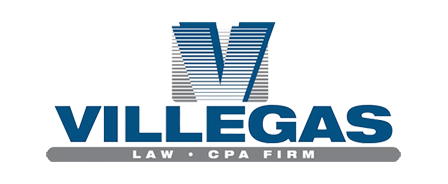5 Important Terms To Know For Planning Your Estate
It’s hard for many people to talk about or even think about death, but it is a reality that everyone must come to terms with. What makes death even more difficult is when a person passes without having had a plan in place for how to carry out their final wishes or distribute their belongings to their heirs. This can lead to stress, confusion, or even disputes among family members, on top of the grief they are already experiencing. Another possibility is that the assets and property of the decedent must go through the Texas probate process, which can be dragged out for months and be expensive to resolve.
All of these possibilities are why working with an estate planning attorney can be so crucial to giving you peace of mind and eliminating confusion. However, estate planning can be a complicated topic to understand. Listed below are a few words that will come up as your estate planning attorney guides you through the process. Knowing these words can empower you to make more informed decisions when it comes to your personal estate planning goals.
1. Guardianship – This term is critical to be familiar with if you are the parent of young children or teens. Part of your estate plan should include naming the person who will become legally responsible for your children in the event that you are no longer there to care for them. In Texas, this is called a guardianship designation. You should be sure to consider this carefully, and choose an individual who closely matches your parenting style and beliefs. They will be able to make all financial, health, and welfare decisions for your child until they turn 18. You should also ensure that the person you have in mind is willing to be named as your guardian, and understands the legal implications of their decision.
2. Revocable Trust – One of the most important estate planning terms to know is what a trust is and what it does. A trust is a legal entity that someone creates to manage their property and assets. There are two types of trusts: revocable and irrevocable. Revocable trusts, also known as a living trust, allow the person who created the trust to add, remove, or alter the assets within it at any time. Upon their death, the trust is transferred to the person they wished to inherit. The benefits of working with an estate planning attorney to establish a trust are worth it; trusts bypass the probate process, cost less in taxes, and are protected from creditors, lawsuits, and other risks.
3. Letter of Last Instruction – Letters of last instruction should not be confused with wills or trusts. A letter of last instruction is not a legal document, but can still be included in the estate planning process as it can help ease the heartache of those loved ones left behind. It is a personal statement that really has no specific outline or requirements, but almost always presents the decedent’s desires for funeral and burial arrangements. These should include any other particular information which is not already found in a will or trust. It is also important to make sure you are reviewing your letter regularly and updating or editing it as you see fit. A letter of last instruction is not a stagnant document; as your thoughts and opinions might change within a week, a month, or a year, so should your letter change to reflect them. Your estate planning attorney will make sure to keep a copy safe with the rest of your documents.
4. Advance Healthcare Directive – These are legal documents that allow you to convey your wishes for medical treatment to loved ones like friends and family, as well as medical professionals. These may be referred to if you become incapacitated or are too ill to speak for yourself. There are 4 types of directives that can be executed individually or collectively, depending on the needs of each person. Your estate planning attorney can go over each of them with you so that you can make the decision that most closely aligns with your personal beliefs.
A) General Healthcare Directive – A directive to physicians, friends, and family that allows you to advocate for withdrawal of health care in the face of a fatal or terminal condition.
B) Medical Power of Attorney – This differs from general power of attorney, as it only allows the individual you choose to make decisions pertaining to your healthcare. You do not have to be in a terminal state for medical power of attorney to be used.
C) Out – of – Hospital Do – Not – Resuscitate (DNR) – This document makes it known that you do not want life-saving procedures taken if you are in a non-hospital setting where medical professionals are called to assist.
D) Declaration of Mental Health Treatment – This is enacted when a court concludes that you are incapacitated. This document expresses your consent or refusal of certain mental health treatments like psychoactive medication and convulsive therapy.
5. Probate – Perhaps the most important term to be aware of when it comes to estate planning is the reason why estate planning is worth working with an attorney to complete. Many people have never even heard of the word probate, or know what it entails. Probate is a complicated and confusing legal process that requires a deceased person’s assets to pass through a court before being distributed to the beneficiaries who are named in the will, or the beneficiaries according to Texas laws of intestate succession. Probate can prevent the inheritance a person leaves from going to their intended beneficiary for months and force them to pay costly legal expenses and court fees. When trying to grieve the loss of a loved one, it is the last thing anyone wants to deal with. By working with an experienced estate planning attorney to solidify a plan for your assets, you can remove this possibility from coming into play.
The Villegas Law Firm Keeps You At The Forefront
The priority of the Villegas Law Firm is to keep you informed and supported throughout your estate planning process, especially when the future of your family will be impacted. We make a careful effort to hear your concerns and present you with all of the options that meet your specific needs. Call today to schedule your free consultation and feel confident in the quality service we are passionate about providing.

